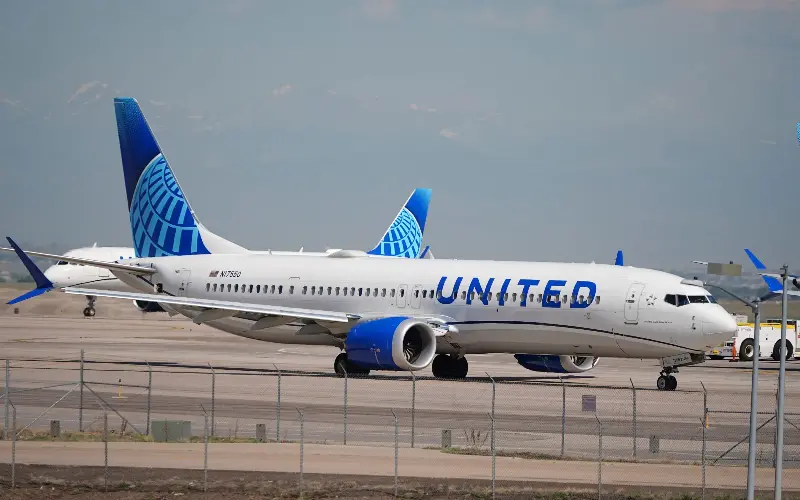
Travelling solo can be tricky enough without having to pay a special premium for the privilege. So singletons and solo adventurers alike may be raising an eyebrow at news from the States that three of the country’s biggest airlines – American, United and Delta – are charging higher prices for lone passengers.
In some cases, the difference is hefty: the US travel website Thrifty Traveler found that single passengers on a United flight from Chicago to a smaller city in Illinois (Peoria) were being charged $269 to fly, compared to just $181 for those travelling as a pair – a saving of one third.
It isn’t an isolated example. Another US travel website, The Points Guy, carried out a detailed analysis of some 3,000 domestic flights on a single day in the States and found that 7 per cent of them were charging a higher price to passengers having the audacity to travel alone.
Why the premium? While airlines are notoriously secretive about their pricing methods, one reason being put forward is that the algorithms may assume that those travelling on their own are more likely to be business customers who are less likely to object to the higher rates.
Curious to check the phenomenon for myself, I spent 15 minutes on the United website and was soon able to find a live example of this dual pricing in action: an economy flight from Chicago to Lexington whose per-person price dropped by $58 when I included a second passenger, from $283 to $226.
Even more curiously, the tax breakdown on the United website showed that the tax per passenger was actually slightly less when two passengers were on the same booking – meaning that the higher rate was entirely down to airline policy.
Bad news, then, for anyone planning their own solo venture across the States. But given that American airlines have long set the trends on things like baggage fees, is there any chance that this depressing trend could soon take hold on this side of the pond too?
A curious discovery
Consumer experts told me they had not seen any examples of European airlines charging single passengers more. But when I conducted my own research by testing flight prices on Ryanair, I found what appeared to be the opposite phenomenon.
Looking at flights from Stansted to Podgorica, for example, I was quoted £142.69 for a basic fare as a solo traveller, but £157.69 (each) for two passengers on the same flight. Likewise, a one-way flight from Stansted to Prague jumped from £71.54 to £82.04 when I added a second passenger.
I was able to find more examples of the same thing happening, with the price jumping between 10 and 15 per cent when a second passenger was added to the booking. All of these flights had one thing in common: namely that the single passenger was told there was “only one seat left at this price”.
Anyone who has booked a Ryanair flight will have seen similar messages appearing. But even if there’s only one discount seat left, you might assume that someone booking two tickets would get the last remaining bargain price plus the next cheapest seat on offer – but you’d be wrong.
When I contacted Ryanair, they told me that “our system defaults all passengers in the booking to the next available fare class”. In short, that means that if there is only one seat left at the cheapest price, then it will only be available to customers purchasing a single ticket.
By contrast, if you were booking as a couple, the system would automatically allocate you into the first pricing bracket in which two seats were available, even if that means leaving that discount seat on offer for someone else to snap up at a later time.
Of course, there’s nothing to stop you booking the tickets separately and getting the cheaper price. But how many travellers are going to have the foresight to do that?
I was surprised to find out that couples were potentially losing out. Particularly since the consumer experts at Which? told me that the usual pattern is to see singletons paying more when it comes to holiday deals. In 2023, they revealed that solo travellers were charged an average of 47 per cent more when paying a Tui package holiday.
Likewise, it is common for some cruise companies to levy an extra surcharge on solo holidaymakers, on the basis that they are taking up a room which was likely designed for two paying customers.
“Companies should be up front about any pricing practices they are using or single supplements so travellers can make informed decisions and choose the best holiday for them,” says Which?’s travel expert Rory Boland.
“To avoid paying over the odds, we’d recommend looking for companies that waive single supplements. Make sure you’re getting a good deal by comparing the total against the per person price of a couple’s package.”
The rise of dynamic pricing
But where does that leave the United and Ryanair examples, where an airline is charging passengers different prices for exactly the same seats based on whether they are booking on their own or not?
The expert consensus is that the practice is another example of so-called “dynamic pricing”, where airlines adjust their ticket prices to meet the strength of demand. The practice certainly isn’t illegal, but it can be controversial: particularly when the algorithms are such a tightly-guarded trade secret.
In practice, though, most customers have made their peace with dynamic pricing for airline tickets on the basis that it usually means cheaper getaways in the long run (particularly when you can plan ahead). But the nature of that flexibility means that there will always be some passengers who end up losing out.
As always, the best way to avoid ending up in that category is to make sure you do your homework in advance when booking flights – particularly if you happen to be planning on a solo flight from Chicago any time soon.
